Just a stone’s throw away from Crying Tiger in Makati is a nondescript building that, oddly enough, stands out in mostly residential Poblacion. The utilitarian grey of its facade is broken only by uncolored graffiti seemingly doodled across the concrete.
You can’t really pinpoint what it is. Sometimes, there’s a small, movable sign outside that tells people the place’s name and other times it’s exactly the lack of a label that draws passersby in.
Windows offer a peek into the establishment: Inside, there are neon lights, indoor plants, and a hodgepodge of chairs and tables. Some pieces, we later discover, are custom-made by artist Joven Santos, who upcycles old furniture and repurposes reclaimed wood. Pet fish and the heady aroma of coffee greet you at the entrance.
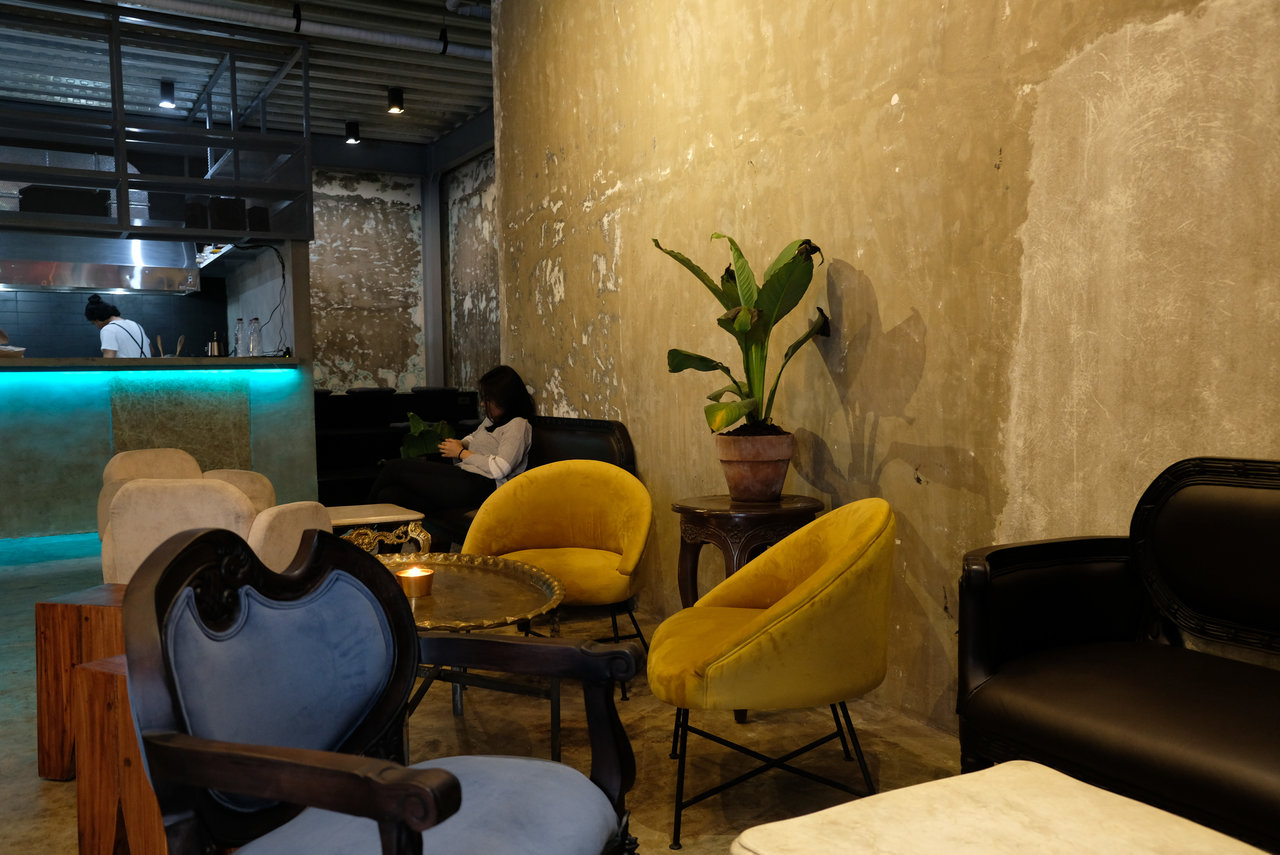
A café morning to midnight, a restobar after six, an art hub and events venue 24/7—this is Poblacion’s newest multitasking space called Dulo MNL, and it could pretty much take care of your hangout needs from morning to (past) midnight.
“We drew inspiration from Penguin Café and Sev’s in Malate. Those places were known for being open to any form of art. People would head there, whether they were a struggling artist or an established director, and all pretenses and socioeconomic statuses would go out the window. You’d just go there, you talk about politics, you talk about art. You jam. You eat good food,” said Alexa Arabejo, who co-owns Dulo with managing partner Rae Lim Pineda. Both are just in their 20s.
The two met in 2012 when they were junior jocks for radio station Magic 89.9, but only started planning Dulo in December of 2016. Before that, they were busy with their respective careers, with Arabejo in marketing and Pineda in events management.
[one_half padding=”0 5px 0 5px”]
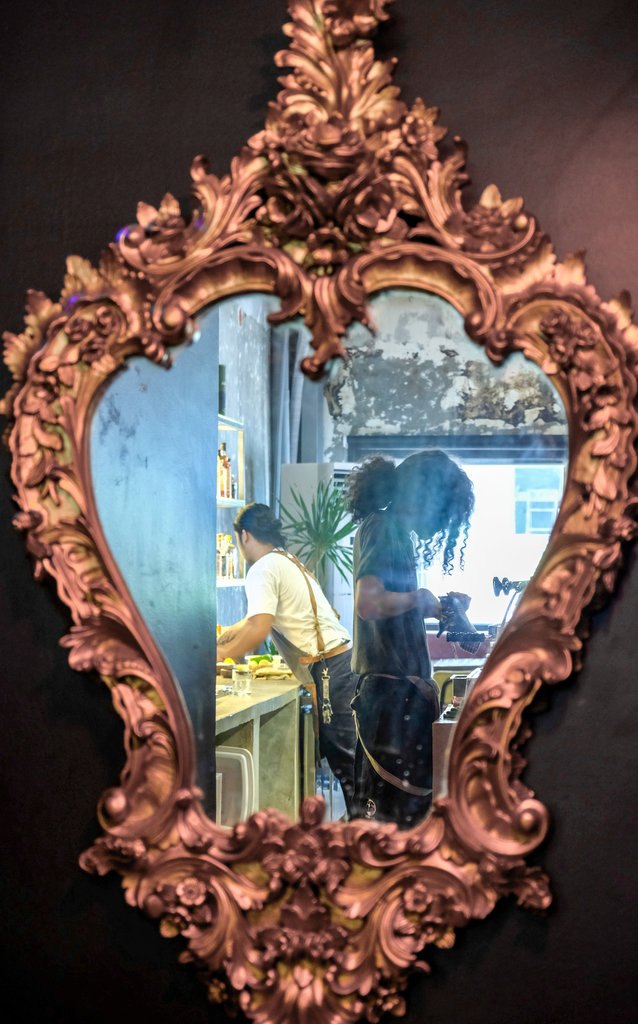
[one_half_last padding=”0 5px 0 5px”]
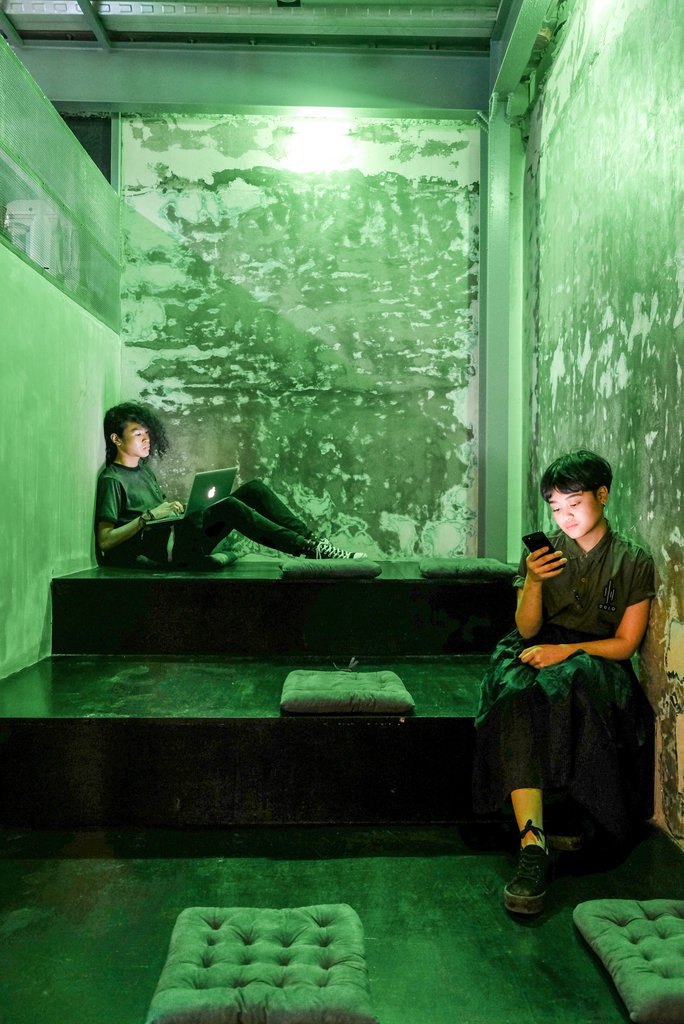
[/one_half_last]
“We were catching up in Alexa’s apartment and we suddenly got talking about the lack of artists’ spaces in Manila. I was basically describing to her what Dulo is now,” said Pineda, who was based in Taiwan at that time and was just visiting over Christmas.
But before they knew it, they were on their way to putting up Dulo and in a few months, Arabejo and Pineda had moved to Poblacion, to which the pair credits their “newfound love for the city.”
Now, Dulo is a two-floor establishment—with a café-bar on the ground floor and an events area on the upper level. The entire space can double as a gallery or even a venue for concerts, plays, performances, exhibits, film viewings, product launches, and practically any event you can think of. The idea was to become a safe haven for dialogue and creative pursuits, for artists under all forms and genres of art, from one end or dulo of the arts spectrum to the other.
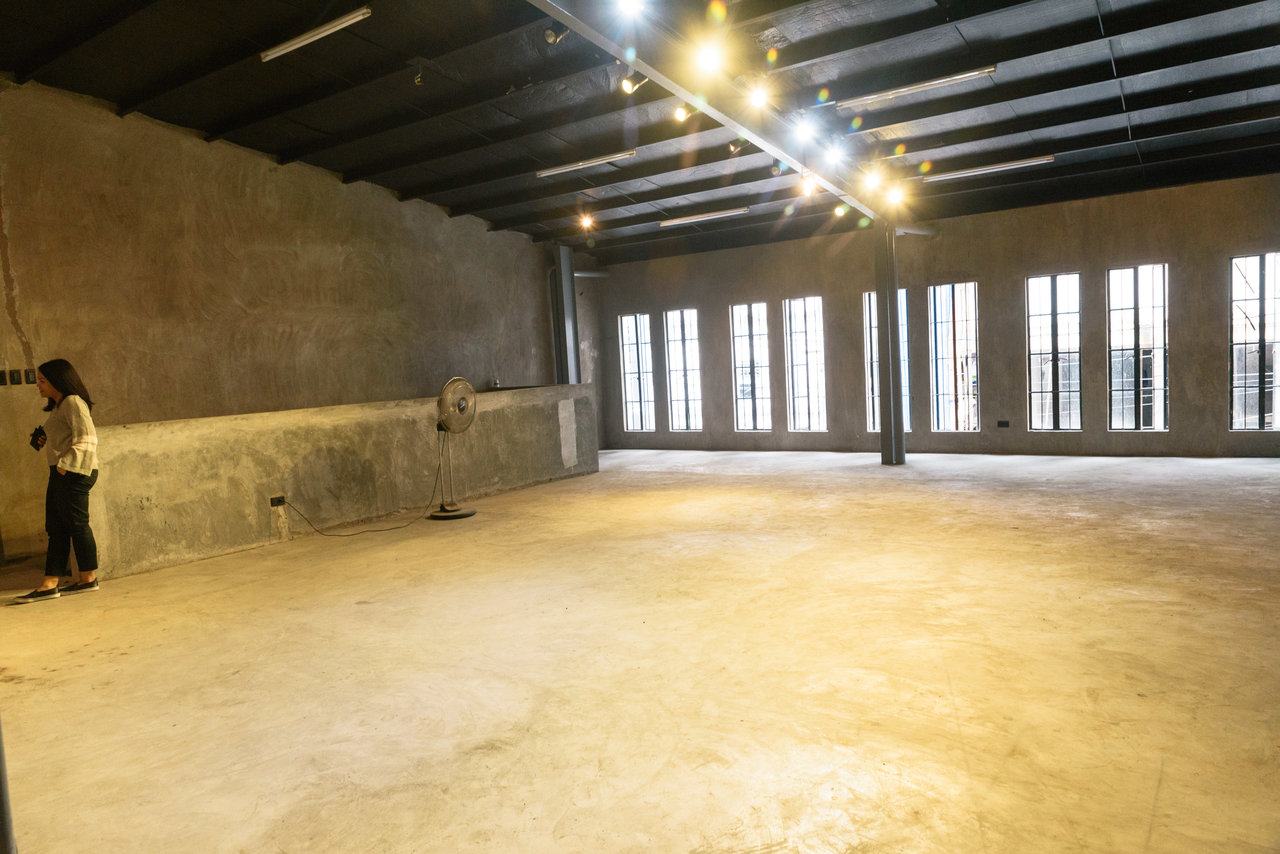
“We are a creative community platform that’s uncensored and unfiltered. We want artists to treat us as a blank canvas. We welcome anyone and everyone. If you want to come over in tsinelas and pambahay, go! By all means. We won’t judge you. All the better, actually, because the more comfortable you are, the happier we are,” said Arabejo, who explained that through Dulo, they wanted to contribute to the Poblacion community, as well as help artists and art enthusiasts by providing a space where they can gather.
“What we’re trying to do with the art community is that we want to bridge the gap between audiences and artists,” Arabejo stressed.
“We don’t want to be intimidating. We want everyone to experience what art is in all forms,” Pineda added.
Comfort food
And what better way to foster community and friendship than with good bar chow paired with an innovative drinks list?
Because Pineda fell in love with the flavors she enjoyed during her stay in Taipei, Dulo MNL offers modern comfort food that spotlights the fusion of Filipino and Taiwanese cuisine.
“Taiwan has such a rich street food culture so we wanted to serve comfort food, but not just your ordinary comfort food and nothing that has already been offered before,” Arabejo said.
[one_half padding=”0 5px 0 5px”]
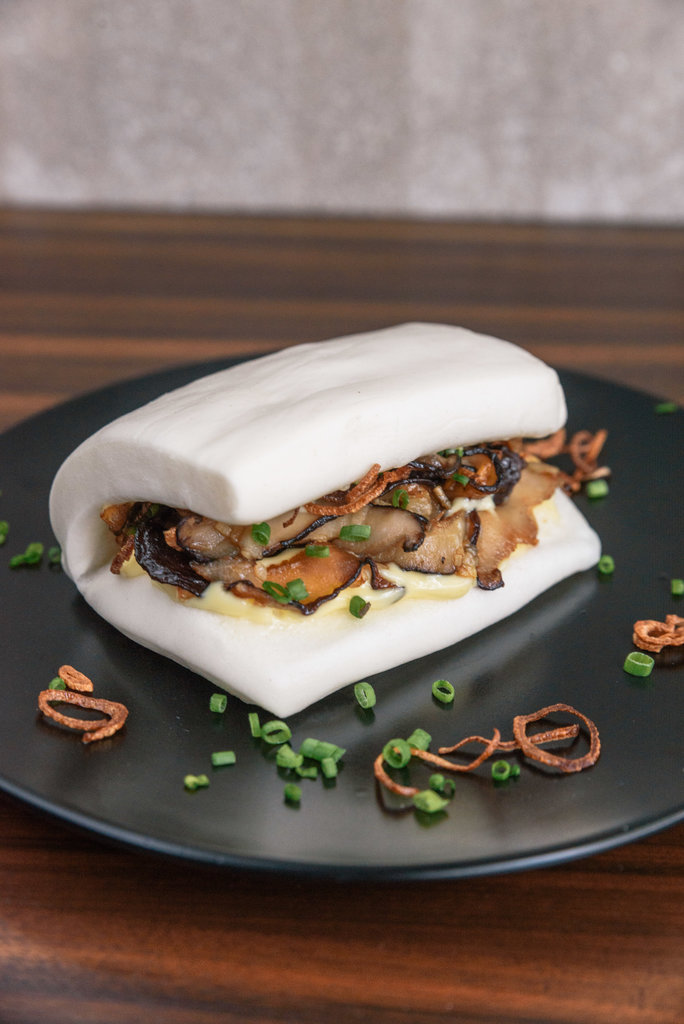
[/one_half]
[one_half padding=”0 5px 0 5px”]
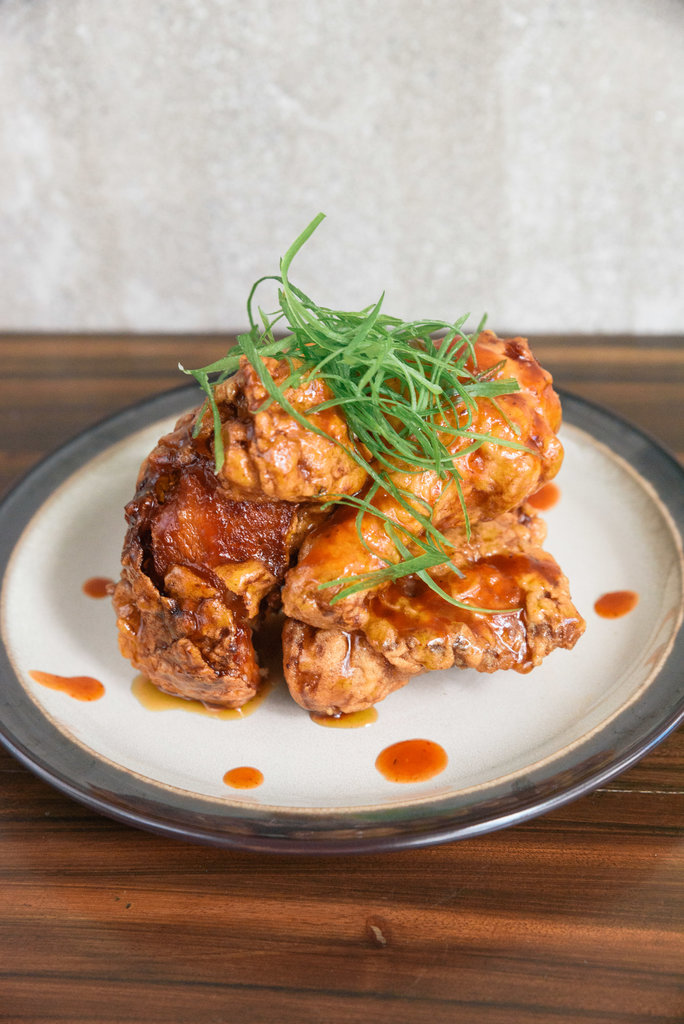
[/one_half]
Their mushroom bao (my personal favorite), for example, is a savory combination of shiitake mushrooms, homemade mayo, and fried shallots. It looks like it could be gobbled up in just three bites, but I kid not when I tell you that this filled bun dish packs a punch in terms of flavor. According to Arabejo, some people have likened the mushroom bao to sisig, but I think it tastes more like the Japanese okonomiyaki. The smokiness and the velvety texture of the mushroom perfectly complements the crispiness of the shallots and the richness of the mayo. If it’s not obvious enough, the mushroom bao wins best in umami in my book.
For those who want something more filling, the rice bowls are the way to go. Essentially, they are Dulo’s take on the Filipino breakfast favorite, silog. You can choose from pork belly, chicken, and salmon belly. All rice bowls are served with egg and Japanese rice with a generous sprinkling of sesame seeds.
Another crowd pleaser is the clam miso soup, which sits in that mouthwatering in-between of a broth and a chowder. From the kitchen, it comes out as watery soup, but mix in the pureed potatoes it’s served with and voilà—you have chowder.
[one_half padding=”0 5px 0 5px”]
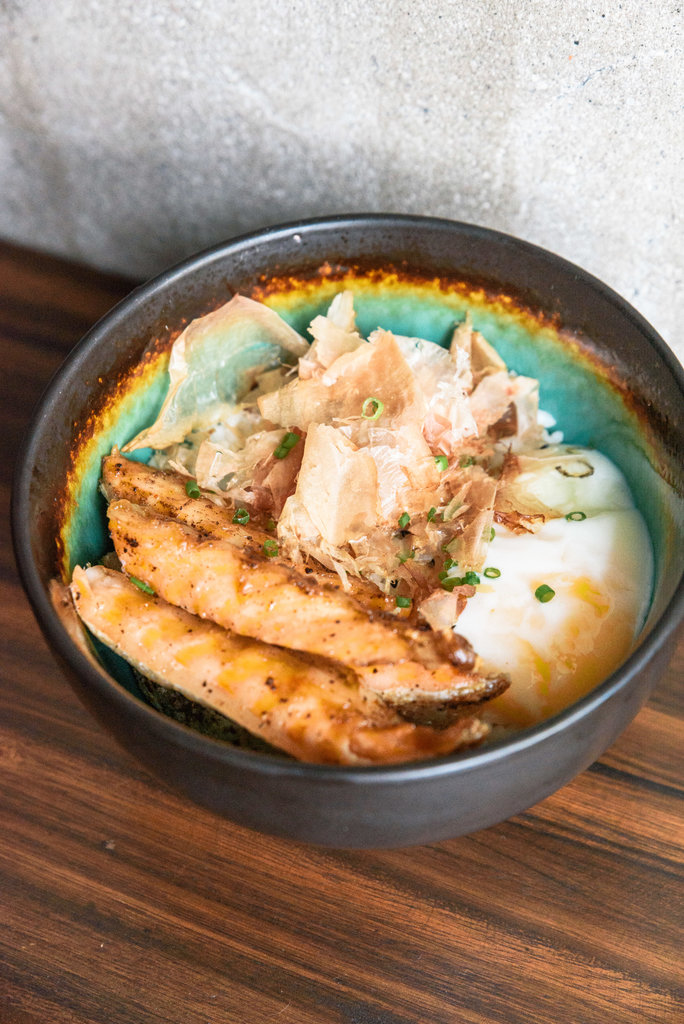
[/one_half]
[one_half_last padding=”0 5px 0 5px”]
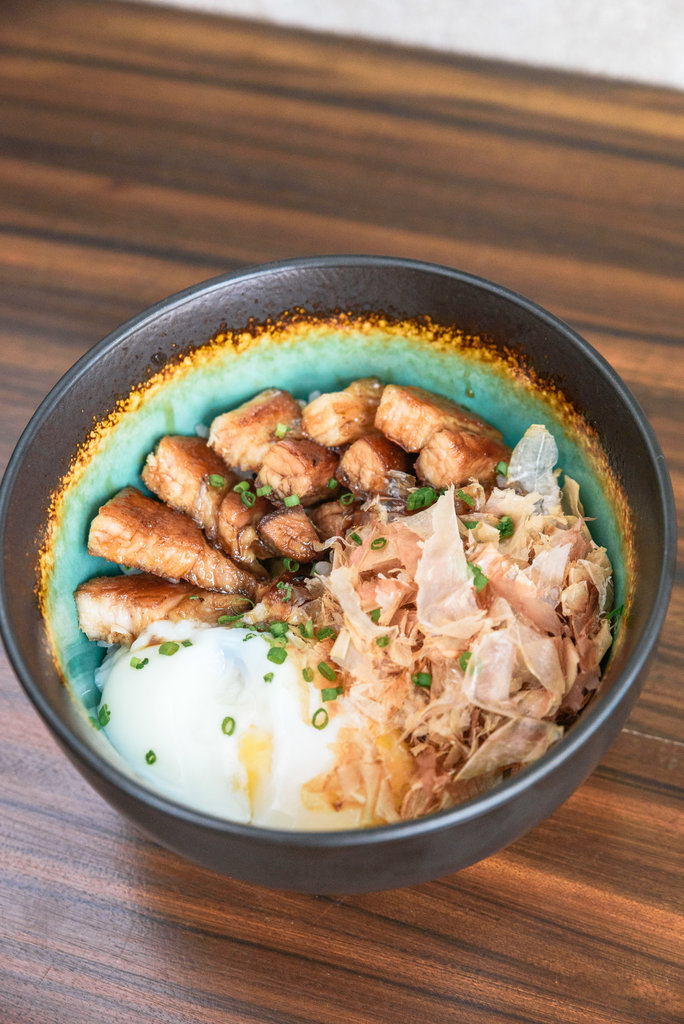
[/one_half_last]
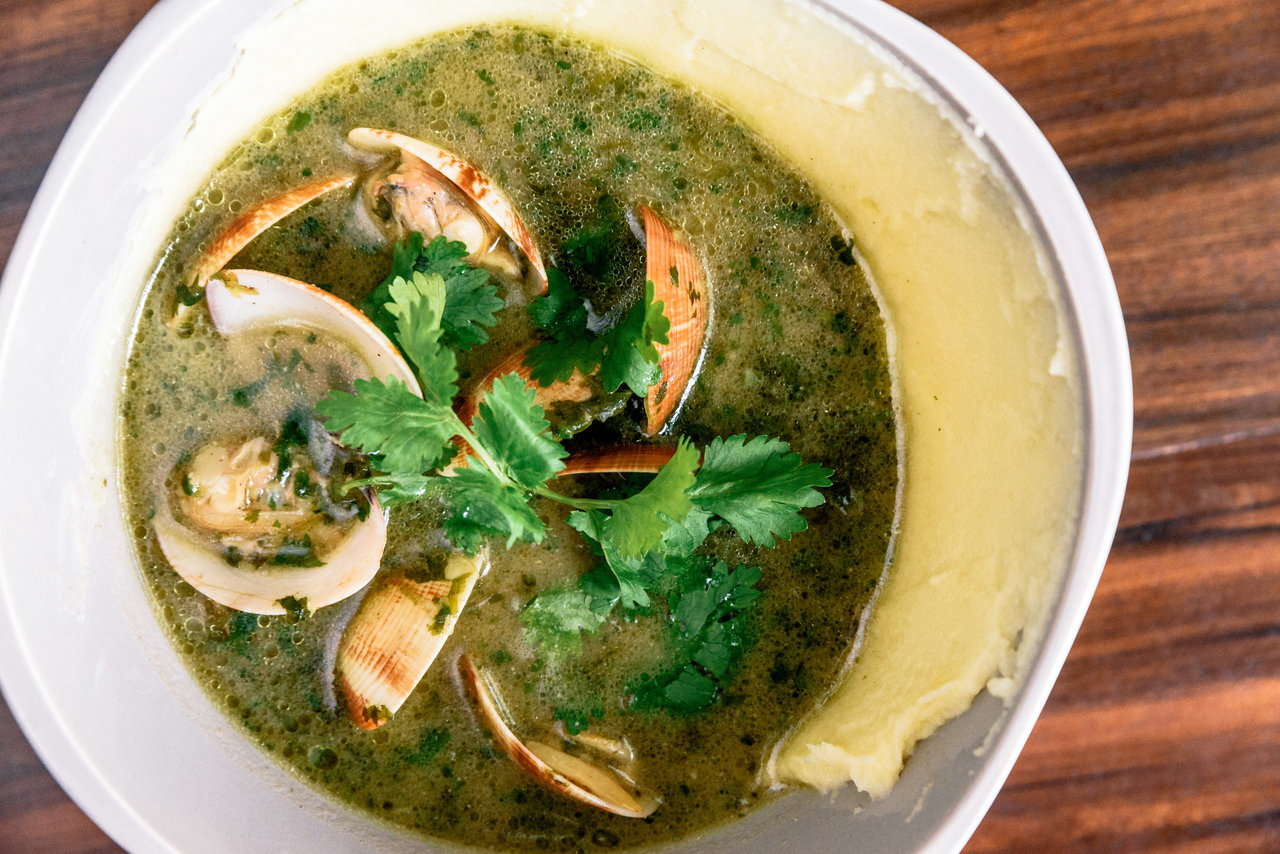
Dulo also has finger food for sharing. We suggest the fried chicken—which is sweet, salty, and mildly spicy all at once—or the fries. Because come on, you can’t go wrong with fries made from scratch. It doesn’t hurt that almost everything they serve in Dulo is made from scratch as well. They’re even currently looking into making their own buns for their baos.
Bottoms up
From coffee to signature alcoholic drinks to basic booze, Dulo has got you covered. Their café was borne out of a joint venture project with specialty coffee solutions company Bean and Barley. While the classic Americano remains the bestseller, other coffee concoctions customers may want to try are the salted mocha (if you prefer something sweet) and the espresso martini (if you prefer something spiked).
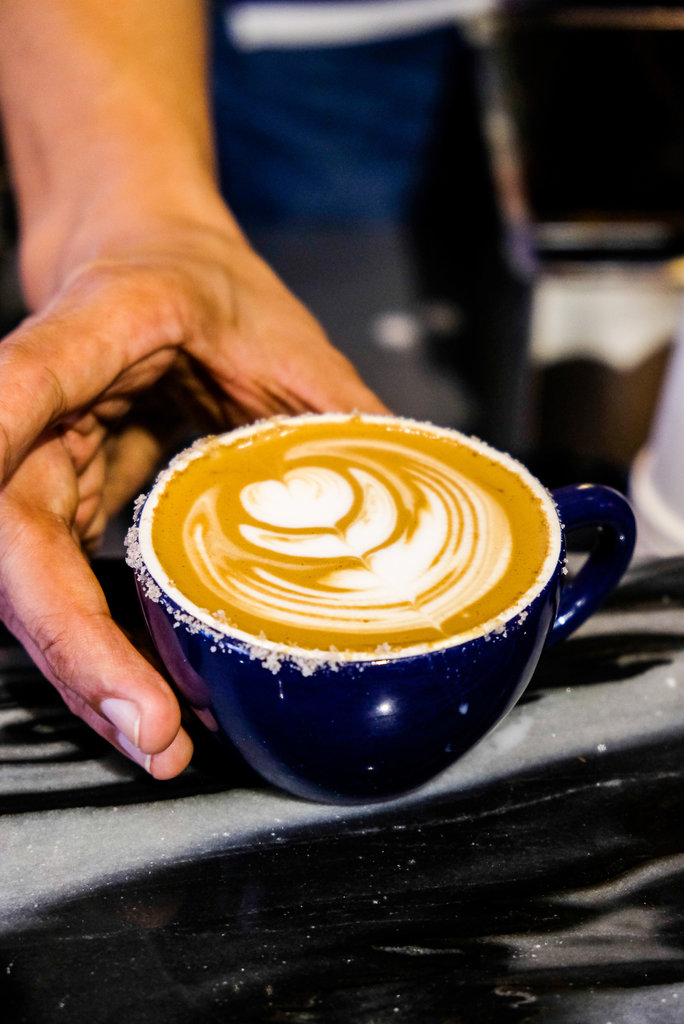
But once the clock strikes six, we advise heading over to the bar to get yourself a proper drink. Dulo’s bar head Uno will be more than happy to walk you through the drinks list and recommend any of their signature cocktails, which double as palette cleansers. I’m a sucker for sours, and bar consultant Kath Eckstein’s specialty is the whiskey sour, so I would definitely recommend Dulo’s sake sour.
[one_third padding=”0 5px 0 5px”]
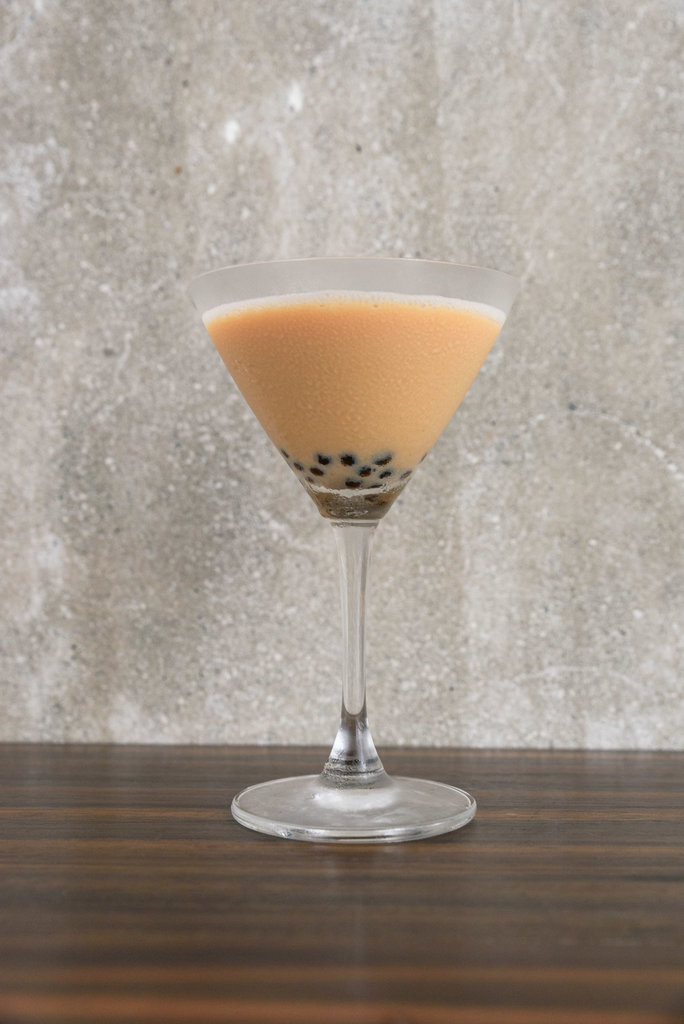
[/one_third]
[one_third padding=”0 5px 0 5px”]
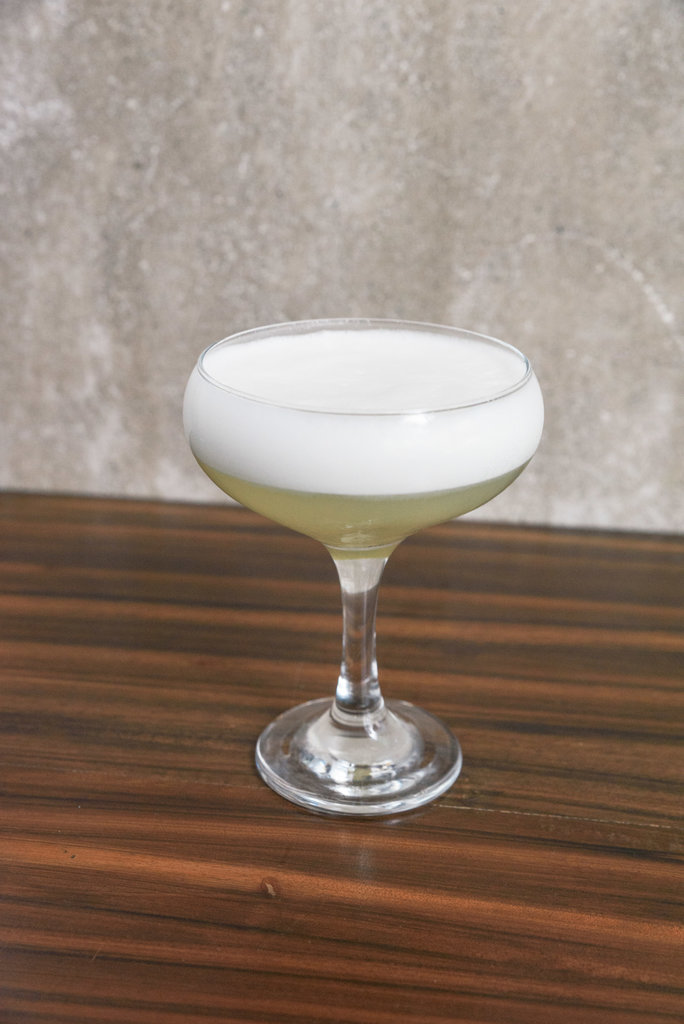
[/one_third]
[one_third_last padding=”0 5px 0 5px”]
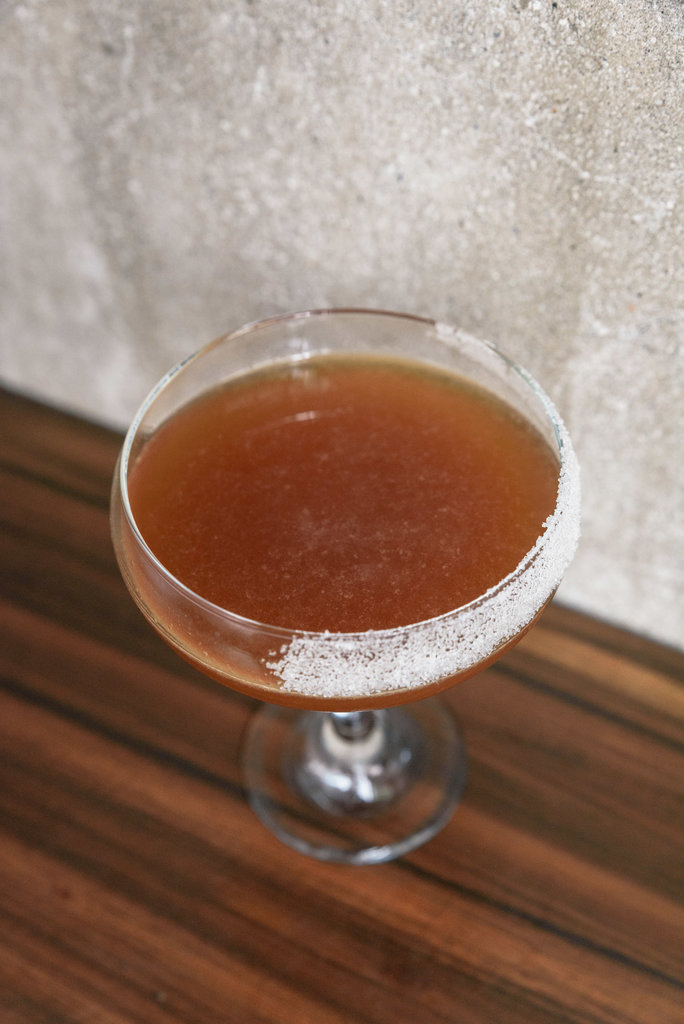
[/one_third_last]
Or you can also try the naichatini, which is basically milk tea spiked with liqueur. If you’re in the mood for something fruity and refreshing, go for the Grade 6. It tastes like melon juice, but has the kick of vodka.
Good company
Creatives and art enthusiasts aren’t the only ones Arabejo and Pineda set out to help when they put up Dulo. They’re also proud of their diverse staff comprised of students, professionals, and dropouts. Several staff members are in bands. Some are writers and others are working students. And all of them are encouraged by Arabejo and Pineda to discover their own interests and develop skills outside of their job description.
“We want their stay at Dulo to be a holistic experience and something that they can take with them. It’s not alien for us to clean the bathrooms. You will see us bussing out, cleaning tables. We also do everything. There’s no discrimination. We participate in this,” said Arabejo, who added that they all do rotations so that everyone on the team can be more sympathetic towards each other.
All members of the staff also undergo training and participate in the brand’s research and development.
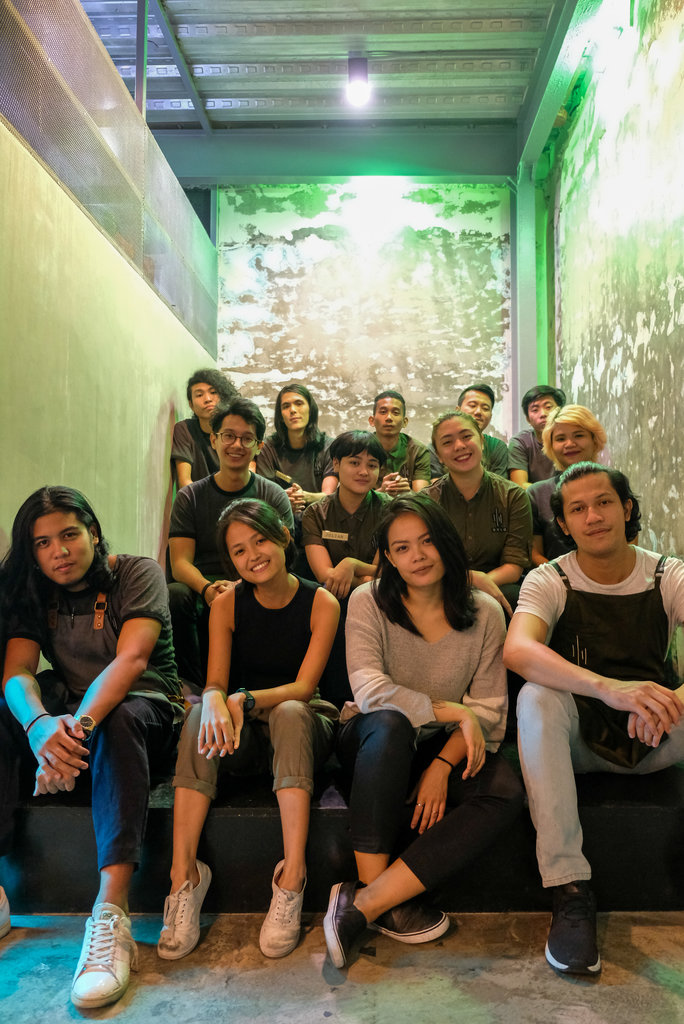
“We want them to be able to voice out their opinions and give their own input. Everything here is a product of collective effort,” she noted.
But with everything that Dulo offers, it’s difficult to pin down what exactly they want to be known for. Is it good bar chow? Their drinks list? Specialty coffee? Their events venue?
“When we started Dulo and we started telling people about it, they were like, ‘What are you not doing?’ But at the core of it, the focus really is genuine quality on all points. Something sincere at the end of the day. Plus the creativity that went into it. We really thought about the drinks, the food, the community, the people we wanted to help. And at the end of the day, it’s that,” Arabejo said.












































